Student Voice
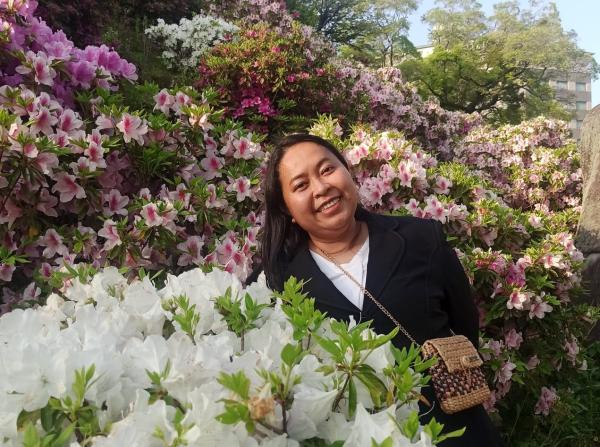
KHUN Vateysreyleak
Nationality
Cambodia
University/Institution Name
Ritsumeikan Asia Pacific University (APU)
Department/Faculty
Graduate School of Management (MBA)
Period of study abroad
September 2021 to September 2023
What did you do before studying in Japan?
I was working as a Culture and Education Exchange Deputy Manager
Why did you chose to study in Japan?
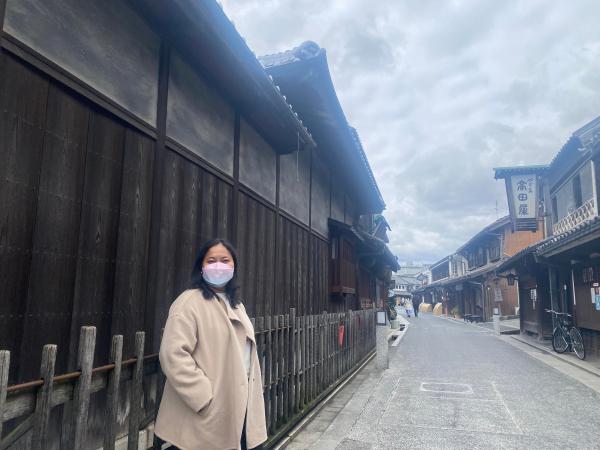 Since I was young, I've been inspired by Japanese cultural traditions and educational programs for children shown on my native country's television channel, which has sparked my curiosity about visiting and studying in Japan.
Since I was young, I've been inspired by Japanese cultural traditions and educational programs for children shown on my native country's television channel, which has sparked my curiosity about visiting and studying in Japan.
After obtaining my bachelor's degree at my local university, I had the opportunity to work at CJCC, a collaborative center under the Cambodian and Japanese governments. With over 8 years of working experience as an event planner and promoted to a middle management level, I have worked with various Japanese organizations, both public and private sectors. The events and activities are mostly connected to Japanese and Cambodian culture and education exchange purposes, and this is why I have a never-ending desire to continue my higher education in Japan one day.
It was a dream come true when JICA granted me a scholarship to the organization where I was working.
How did you prepare for studying in Japan?
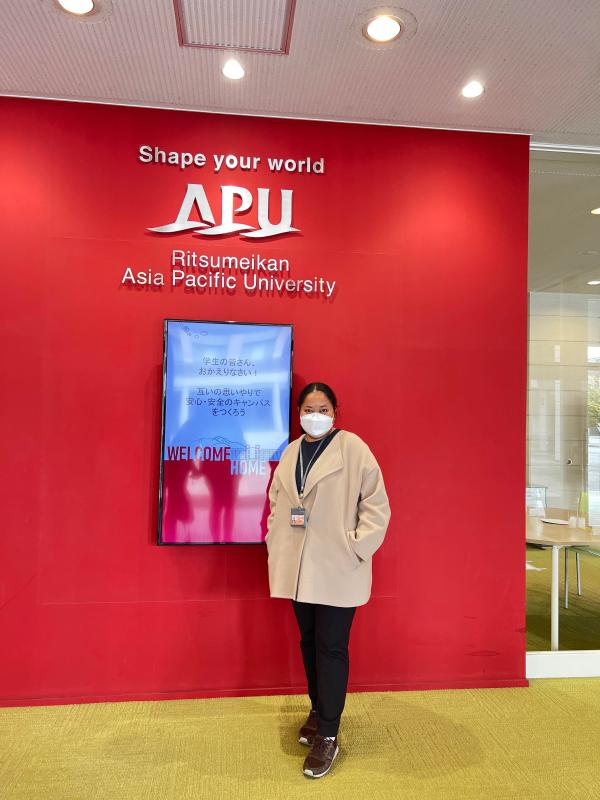 Because my organization, CJCC, is supported by the Japanese government represented by Japan International Cooperation Agency (JICA), I'm extremely excited to be able to apply for JICA’s scholarship program, JICA’s Knowledge Co-Creation Program (Long-Term) on Program on Investment Promotion and Industrial Development for Asia Region, for the academic year 2021.
Because my organization, CJCC, is supported by the Japanese government represented by Japan International Cooperation Agency (JICA), I'm extremely excited to be able to apply for JICA’s scholarship program, JICA’s Knowledge Co-Creation Program (Long-Term) on Program on Investment Promotion and Industrial Development for Asia Region, for the academic year 2021.
To be honest, this is not the first time I've applied for this scholarship; I already failed the first batch. After my first failure, I learned how to improve my application processing and research proposal, as well as properly prepare documents related to the program's and university's requirements.
Currently, I'm pursuing a Master of Business Administration (MBA) at Ritsumeikan Asia Pacific University (APU)'s Graduate School of Management for two years. I believed that I would not only learn and experience academic subjects, but also the cultures, languages, communication, and lifestyles of fellows all across the globe.
How is your student life in Japan?
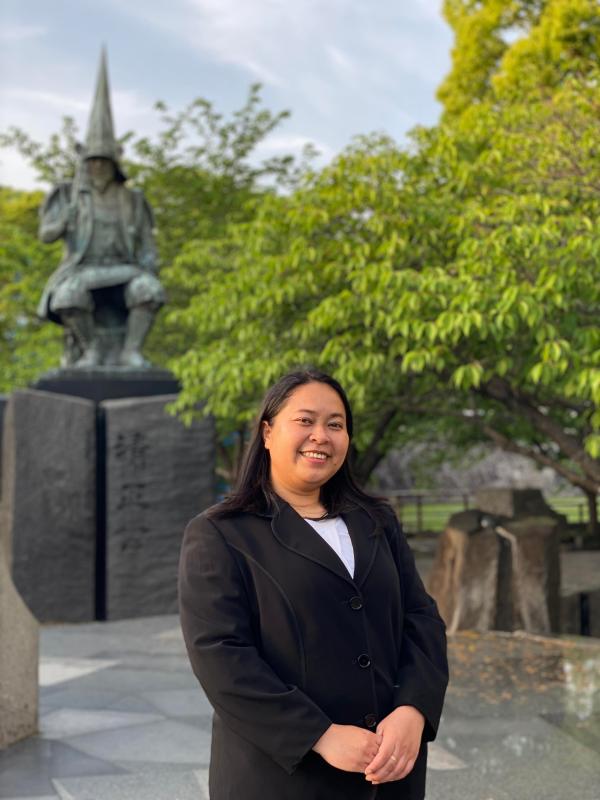 Due to the outbreak concern, it was not easy to catch up on all information from the beginning, especially studying through digitalization methods. Learning from other cultures and the viewpoints of fellows inspired me. Even though we have different cultures, religions, and personal perspectives, we strive to understand and respect everyone because we now live in the same country, Japan. We always support and care for each other. I remembered a Cambodian proverb. “When away from home, you have to like each other like a sibling”.
Due to the outbreak concern, it was not easy to catch up on all information from the beginning, especially studying through digitalization methods. Learning from other cultures and the viewpoints of fellows inspired me. Even though we have different cultures, religions, and personal perspectives, we strive to understand and respect everyone because we now live in the same country, Japan. We always support and care for each other. I remembered a Cambodian proverb. “When away from home, you have to like each other like a sibling”.
As a JICA scholar, I am limited in my ability to apply for part-time jobs that require approval from JICA. Anyway, applying as a TA and volunteering in any events/activities organized or hosted by APU or other organizations connected with APU still provides many better chances. I am currently applying for one program, "Camp Leader (CL) for Global Immersion Camp (GIC 2022)”.
I am committed to being able to use Japanese in my career after graduation. Because my job requires me to work with various Japanese organizations or institutions. Even though English is the primary communication tool, I hope I can communicate with them at least at elementary or with limited functional skills. As a result, I've decided to take the Japanese language as a core subject among other subjects offered by the division, study part-time with my younger sister, who is also a Japanese part-time teacher, and try to practice speaking, writing, and reading with local people daily.
Of course, studying takes priority, but I always bonus myself by visiting interesting venues or participating in any activities throughout the city or other prefectures, rewarding myself after a long day of studying by watching my favorite movie at the cinema, shopping, and never forgetting to contact my family at my home country when I have free time.
Even though I've worked in the Japanese organization for over 8 years, I still experienced culture shock in Japan. There are more and more norms, traditions, and manners that I must learn and adapt while studying here. I believe that homesickness is a struggle that everyone has, and I was no exception.
It was difficult at first, but I attempted to find a better one by calling them on messenger every day when we were both available, and sometimes we text each other to share what we did or were about to do. Transportation is a challenge for me because I have to check the bus or train schedule in advance when I want to go somewhere, and I am not allowed to drive a motorcycle or car in here. It was completely different in my own country, where I could go wherever I liked anytime I wanted. Traveling somewhere alone in a taxi is a bit expensive. However, it is beneficial to understand how to effectively manage my time and riding the Japanese train is great.
Any message and/or advice to those who wish to study in Japan?
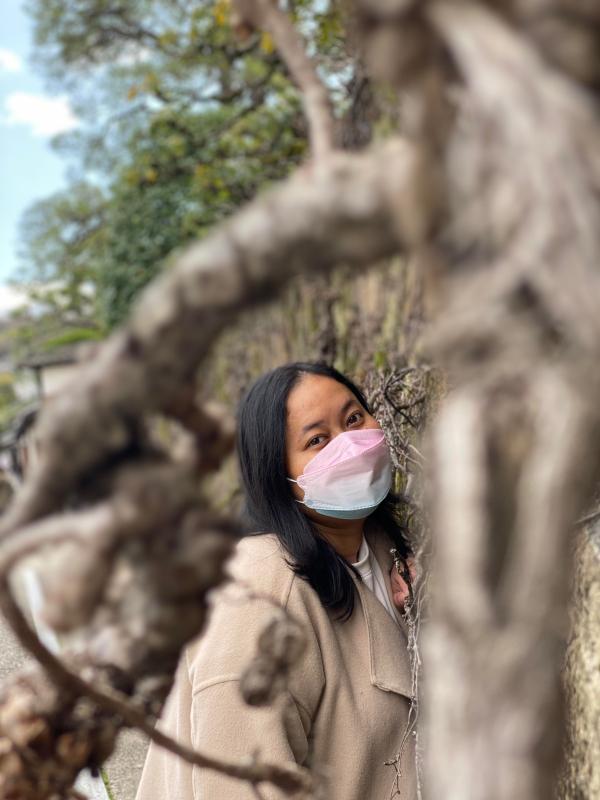 Getting out of our comfort zones isn't easy. But let's try to figure something new, to do new things in order to develop our abilities through multi-insight. New things can be challenging at first, but they can also provide us with benefits, new opportunities, and new perspectives in the long term. It allows us to discover what our own desires are and how they might be fulfilled. Continue to follow our dreams and discover how to obtain and share better things with everyone around us.
Getting out of our comfort zones isn't easy. But let's try to figure something new, to do new things in order to develop our abilities through multi-insight. New things can be challenging at first, but they can also provide us with benefits, new opportunities, and new perspectives in the long term. It allows us to discover what our own desires are and how they might be fulfilled. Continue to follow our dreams and discover how to obtain and share better things with everyone around us.


 Since I was young, I've been inspired by Japanese cultural traditions and educational programs for children shown on my native country's television channel, which has sparked my curiosity about visiting and studying in Japan.
Since I was young, I've been inspired by Japanese cultural traditions and educational programs for children shown on my native country's television channel, which has sparked my curiosity about visiting and studying in Japan. Because my organization, CJCC, is supported by the Japanese government represented by Japan International Cooperation Agency (JICA), I'm extremely excited to be able to apply for JICA’s scholarship program, JICA’s Knowledge Co-Creation Program (Long-Term) on Program on Investment Promotion and Industrial Development for Asia Region, for the academic year 2021.
Because my organization, CJCC, is supported by the Japanese government represented by Japan International Cooperation Agency (JICA), I'm extremely excited to be able to apply for JICA’s scholarship program, JICA’s Knowledge Co-Creation Program (Long-Term) on Program on Investment Promotion and Industrial Development for Asia Region, for the academic year 2021. Due to the outbreak concern, it was not easy to catch up on all information from the beginning, especially studying through digitalization methods. Learning from other cultures and the viewpoints of fellows inspired me. Even though we have different cultures, religions, and personal perspectives, we strive to understand and respect everyone because we now live in the same country, Japan. We always support and care for each other. I remembered a Cambodian proverb. “When away from home, you have to like each other like a sibling”.
Due to the outbreak concern, it was not easy to catch up on all information from the beginning, especially studying through digitalization methods. Learning from other cultures and the viewpoints of fellows inspired me. Even though we have different cultures, religions, and personal perspectives, we strive to understand and respect everyone because we now live in the same country, Japan. We always support and care for each other. I remembered a Cambodian proverb. “When away from home, you have to like each other like a sibling”. Getting out of our comfort zones isn't easy. But let's try to figure something new, to do new things in order to develop our abilities through multi-insight. New things can be challenging at first, but they can also provide us with benefits, new opportunities, and new perspectives in the long term. It allows us to discover what our own desires are and how they might be fulfilled. Continue to follow our dreams and discover how to obtain and share better things with everyone around us.
Getting out of our comfort zones isn't easy. But let's try to figure something new, to do new things in order to develop our abilities through multi-insight. New things can be challenging at first, but they can also provide us with benefits, new opportunities, and new perspectives in the long term. It allows us to discover what our own desires are and how they might be fulfilled. Continue to follow our dreams and discover how to obtain and share better things with everyone around us.